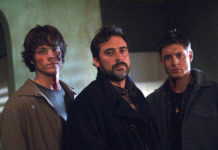Since Hawaii welcomed tourists back in mid-October, allowing them to skip its 14-day quarantine as long as they had a negative coronavirus test, more than 100,000 people have rushed to the islands from mainland states, exciting state officials, some hoteliers, airlines and local business owners, who for seven months have watched the state’s economy grind to a halt.
Instead of the quarantine, the islands began accepting a preflight coronavirus test for entry under a program it is calling Safe Travels. The state is only accepting what are known as nucleic acid amplification tests processed by specially certified laboratories, and test results from certain trusted testing and travel partners, including some airlines.
“Hawaii is at the vanguard of what travel will look like for the next year or so as we reopen,” said Avi Mannis, senior vice president of marketing at Hawaiian Airlines, one of a handful of airlines that began offering pre-travel Covid-19 tests in October.
The surge of arrivals — 8,000 of them on the first day pretesting was available — presented an opportunity to test out new protocols for travelers that could help determine how to reopen travel internationally. If Hawaii’s reopening goes well, the belief is that preflight testing could become widespread. And on the islands, if hotels can figure out how to deal with growing occupancy, the same thing could be done worldwide.
But what travel industry actors view as an opportunity to reopen safely and pave a way forward, many locals and residents view as putting them in harm’s way with untested protocols and allowing people who might have the coronavirus onto the islands.
“It feels like at every point that tourism gets prioritized,” said Landon Ton, a bartender and waiter in Waikiki. “It feels, whether intentionally or not, like we are the guinea pigs for tourism. Like our leaders and the airlines are saying ‘Can we safely reopen tourism or not? Well, let’s see if Hawaii survives. If it does, let’s keep going. If it doesn’t, probably a lot of Pacific Islanders have gotten sick and suffered.’”
Mr. Ton said that on a recent hike near his home, he saw several groups of tourists heading to popular Koko Head without masks on, making him nervous that if any of them had the coronavirus they could pass it on to locals.
“Tourism is terrorism to me right now,” he said. “I’d ask tourists to stay home for now, if they can. You could test negative, but get the virus afterward or you could have it and not realize. Why not skip this vacation for now?”
Source : Nytimes













